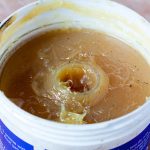
New noninvasive neurotechnology for vets: Study finds therapy using sound is effective for PTSD – without the side effects of medication
Sunday, January 07, 2018 by Zoey Sky
http://www.realsciencenews.com/2018-01-07-new-noninvasive-neurotechnology-for-vets-study-finds-therapy-using-sound-is-effective-for-ptsd.html

According to a study by researchers from the Wake Forest Baptist Medical Center, a “noninvasive brainwave mirroring technology” can help minimize the symptoms of post-traumatic stress disorder (PTSD) among military personnel.
Dr. Charles Tegeler, the study’s principal investigator and professor of neurology at the Wake Forest School of Medicine, PTSD is a prevalent concern among those in the military, whether its current symptoms are diagnosed or not.
Despite the available medications that can be used to manage certain PTSD symptoms, they often come with side effects. There are also other treatments available, but some individuals may not acclimatize to them while others are not as beneficial when it comes to the sleep disturbance associated with the disorder. Tegeler also emphasizes the importance of “additional noninvasive, non-drug therapies.” (Related: PTSD successfully treated with integrative treatments: Healing touch and guided imagery.)
At least “31 percent of Vietnam veterans, 10 percent of Gulf War (Desert Storm) veterans, and 11 percent of veterans of the war in Afghanistan experience PTSD,” per the U.S. Department of Veterans Affairs. PTSD symptoms often include “insomnia, poor concentration, sadness, re-experiencing traumatic events, irritability or hyper-alertness” along with “diminished autonomic cardiovascular regulation.”
The researchers used high-resolution, relational, resonance-based, electroencephalic mirroring (HIRREM), or neurotechnology that offers “noninvasive, closed-loop, acoustic stimulation approach.” HIRREM utilizes computer software algorithms to convert certain brain frequencies into audible tones in real time. It is a registered trademark of Brain State Technologies, a company located in Scottsdale, Arizona, and has been licensed to Wake Forest Baptist for collaborative research since 2011.
This acoustic stimulation approach lets the brain “listen to itself through an acoustic mirror,” shared Tegeler. This means that the brain can now carry out self-adjustments that can improve balance and reduce hyperarousal without the need for “conscious, cognitive activity” via resonance between brain frequencies and the acoustic stimulation. HIRREM ‘s net effect is to help the brain change the rewired stress response patterns caused by both physical and nonphysical traumatic events.
For the study, Tegeler and his team observed 18 service members and recent veterans who have experienced PSTD symptoms from at least one to 25 years. The participants took part in an average of 19½ HIRREM sessions for about 12 days.
Data about their symptoms were gathered before and after the study sessions. The researchers also conducted follow-up online interviews with one-, three-, and six-month intervals. Heart rate and blood pressure readings were also recorded after the first and second visits to determine downstream autonomic balance with heart rate variability and baroreflex sensitivity.
Tegeler commented, “We observed reductions in post-traumatic symptoms, including insomnia, depressive mood, and anxiety that were durable through six months after the use of HIRREM, but additional research is needed to confirm these initial findings.” He concluded, “This study is also the first to report improvement in heart rate variability and baroreflex sensitivity – physiological responses to stress – after the use of an intervention for service members or veterans with ongoing symptoms of post-traumatic stress.”
Treatments for PTSD that don’t need medication
If you are diagnosed with PTSD, consider trying some of the treatments listed below which are much safer than drugs and are not associated with any side effects:
- EMDR (Eye movement desensitization and reprocessing) – EMDR utilized eye movement techniques, or other sensory stimuli like sound, under the supervision of a trained EMDR psychotherapist. These methods let the brain reprocess traumatic memories.
- Cognitive behavioral therapy – In trauma-centered cognitive behavioral therapy, the therapist and client cooperate to correct the “distorted or inaccurate thoughts” concerning the traumatic memory.
- Guided imagery – A variation on meditation, guided imagery involves dialogues that specifically “address the anxiety, depression, grief, insomnia, lowered self-esteem, and traumatic wounds of PTSD.” Clients listen to the dialogues several times weekly on an MP3 or CD player.
You can learn more about PTSD and mental health at Mind.news.
Sources include:
Tagged Under: Tags: acoustic stimulation, alternative medicine, brain health, goodhealth, goodmedicine, goodscience, military personnel, natural medicine, neurology, noninvasive brainwave technology, post traumatic stress disorder, post-traumatic stress, post-traumatic stress syndrome, PTSD, sound therapy, Vets, vibrational medicine





